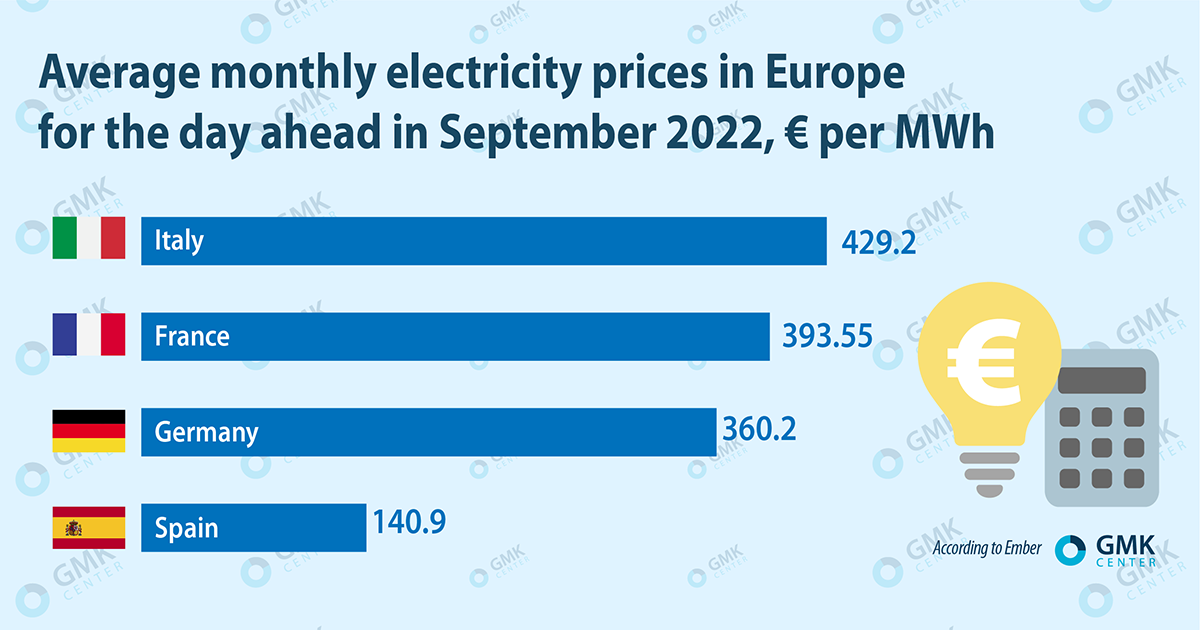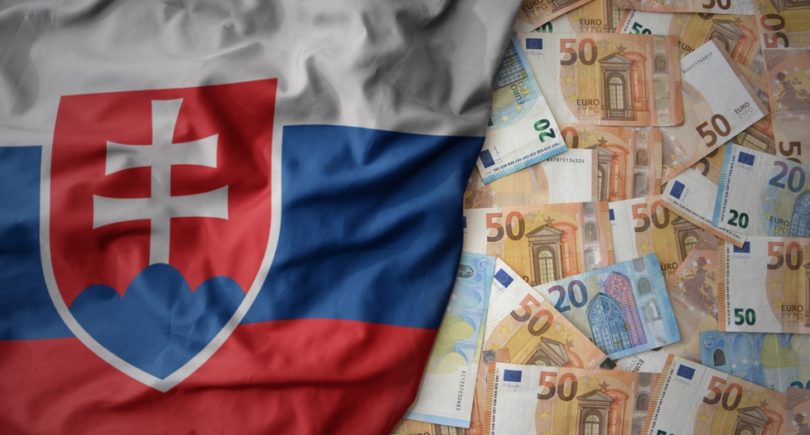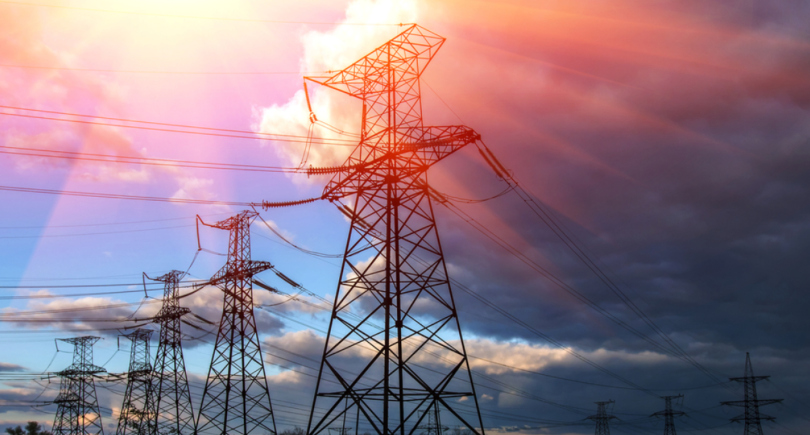
Posts Global Market energy crisis 3125 06 October 2022
Spot electricity prices vary across European countries, and governments are introducing packages of measures to overcome the energy crisis
Electricity prices vary in different European countries. Thus, according to Ember, in Europe, the average monthly day-ahead prices in September 2022 were:

In the UK, according to Nordpool, the average monthly spot price for a day ahead in September was €310.7 per MWh.
Compared to September 2021, prices increased by 2.5-3.0 times, but slightly decreased compared to August 2022.
In the conditions of the energy crisis, countries are trying to protect household consumers and industry from a sharp rise in energy prices. On September 30, the energy ministers of the EU countries approved the first package of emergency measures aimed at curbing the rapid increase in the electricity price. The governments of the EU member states also presented their plans for overcoming the energy crisis in September.
Italy. At the end of September 2022, the Italian Ministry of Economic Development approved the «Aiuti ter» decree, which provides energy bonuses for enterprises. Thus, at the end of the year, steel companies will be able to take advantage of a 40% tax discount for energy costs purchased and used in October and November. The discount will be calculated considering each producer’s real energy consumption. However, according to source, the discount will not be given to companies that will not operate. Less energy-intensive enterprises, such as scrap processors, will be able to take advantage of a similar scheme – a 30% tax discount.
According to the data of the network operator Terna, the demand for electricity of Italian industrial enterprises in August 2022 fell by 15% compared to the same month of 2021.
Germany. On September 29, German Chancellor Olaf Scholz announced a €200 billion ($194 billion) «defense shield» to help households and businesses. The plan expects the government to introduce mechanisms for an emergency reduction in gas prices and containment of electricity prices. Germany would finance the aid package with new loans. In 2022, Berlin temporally suspended debt limit, which was at 0.35% of GDP.
Euronews writes, that the scheme announced by Germany appears to have caught Brussels and the other EU governments by surprise, both because of its scale and because of the announcement timing – a day before EU energy ministers met (September 30) to approve the first package of common emergency measures. In particular, the initiative highlighted the gap between wealthy EU countries that can afford new borrowing and governments that are desperately looking for new funds.
At the beginning of September 2022, Germany’s ruling coalition also agreed on a €65 billion ($64.7 billion) aid package for citizens and businesses amid rising inflation and rising energy costs. This is the third package aimed at fighting inflation. The aid provides tax benefits in the amount of €1.7 billion for 9,000 energy-intensive companies. The energy-intensive industry, in particular VW Stahl, welcomed the allocation of funds under the «defense shield».
On August 22, 2022, basic electricity prices in Germany reached a record level of €700 per MWh. They increased in connection with the increase in gas prices. Markets were also disrupted by heat in Europe, low wind speed, and falling water levels in the Rhine.
United Kingdom. According to the action plan, which was announced on September 21 by the ministries of business, energy and industrial strategy of the country, from October 2022, an emergency limit on electricity prices was established for British enterprises for six months. In particular, the price of electricity for commercial consumers will be calculated based on a maximum wholesale price level of ₤211 (€242.10) per MWh.
As the government explained, this will be less than half of the wholesale prices expected this winter. However, Guardian notes, that electricity prices for business customers will still be around double higher than they were in October 2021, when the price was ₤117 (€134) per MWh. Forecast winter prices are expected to be around ₤540 (€619) per MWh.
The government plan will be reviewed in three months, as a result of which a decision will be made on the forms of support after March 2023.
Pan-European measures. On September 30, 2022, EU energy ministers approved the first package of emergency measures aimed at curbing the rapid growth of electricity bills and coordinating the response of states to the energy crisis. These are mandatory measures for energy conservation, limitation of excess market revenues and collection of excess profits received by energy companies.
The plan includes, in particular, limiting the excess income of power plants that do not use gas to produce electricity (solar, wind, nuclear, coal, hydropower). For this purpose, a single electricity price limit of €180 MWh is established for such stations. All revenues above this level will be collected by governments.
As GMK Center reported earlier, European governments have allocated almost €500 billion to protect citizens and companies from the rapid rise in gas and electricity prices. Analysts believe that state intervention has become structural.




